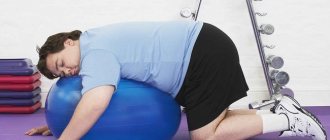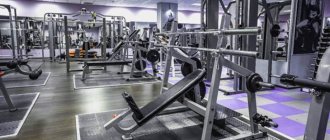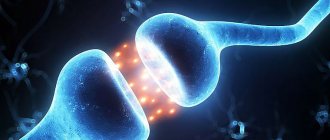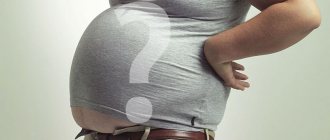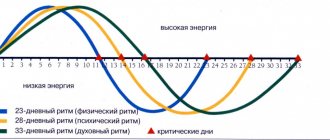The question of the effect of alcohol on an athlete’s body is one of the most common, especially among novice athletes. Arguments that alcohol interferes with sports are often shattered by concrete facts about mysterious strongmen who increase training performance in proportion to the amount of alcohol they drink.
It is immediately necessary to clarify that sport and alcohol are incompatible in principle. You can have a couple of glasses of wine during periods of rest after competitions, but regular libations will in no way allow you to achieve any serious results.
Below we will consider in more detail the question of whether it is possible to play sports after drinking alcohol, as well as the possible consequences of trying to combine alcohol and sports.
Introduction.
For real tough athletes, the topic of alcohol and sports is simply incompatible, although, to be honest, it happens that athletes also sin in this matter. Today we will try to understand whether alcohol can be compatible with sports, how much of it can be consumed without impairing recovery, and how alcohol affects your body after exercise.
I think many people are familiar with the situation when you come home from training on Friday, and your friends invite you to a cafe, club, restaurant, or just to sit in a group and drink a glass of beer or something stronger. Have you ever wondered what will happen to your body and whether it will be able to recover after you drink the nth dose of alcohol? Let's figure it out.
Sports nutrition and alcohol
As mentioned above, one of the main effects of alcohol on the body is a decrease in the rate of muscle fiber formation. This in itself makes both training while drinking alcohol and using any type of sports nutrition to build muscle mass pointless.
In addition, many types of combined sports nutrition, when mixed with alcohol, can pose serious health risks. It is worth knowing that most types of gainers and complex cocktails for weight gain contain various types of permitted stimulants (guarana, caffeine, thiamine, etc.). When used in the dosages specified by the manufacturer, such substances should not have side effects, but if mixed with alcohol, they pose a significant health hazard.
Dehydration.
Perhaps the first thing an athlete should be afraid of when drinking alcohol is dehydration. Ethanol itself is a good diuretic; it causes your kidneys to work overtime and produce more urine. As a result, you lose water, get dehydrated, cramps, poor recovery, slow central nervous system function, in general, your body goes into emergency mode, which, accordingly, leads to an increase in the level of catabolic hormones, which begin to destroy your muscles.
Is it possible to exercise after a glass of wine?
In this case, it is advisable to answer the question of whether it is really necessary to drink wine before going to the gym. Statements that, for example, white wine or homemade wine will not cause harm are completely devoid of logic. The main substance that affects the body in any type of wine is ethanol. And besides harming the muscles, it has no other effect.
Alcohol impairs motor coordination and muscle efficiency. Therefore, under moderate loads, training after a glass of wine will be significantly less effective, and when working with significant weights, it will pose a health hazard.
Thus, we can conclude that wine before and after training inevitably harms the body. It is impossible to combine completely different things. If you want to spend time in an entertainment establishment, go ahead, but you won’t be able to combine wine and sports.
Liver.
It’s no secret that alcohol puts a strain on the liver, perhaps everyone knows this, but let’s take a closer look at what’s happening to it. In addition to the direct toxic effect of alcohol, in our liver there is a special enzyme called alcohol dehydrogenase to break down alcohol; this enzyme is responsible for the breakdown of alcohol into acetaldehyde and ketones. At the same time, acetaldehyde is also toxic and also exhibits carcinogenic properties: it damages DNA and causes disruption of protein metabolism.
Wine after workout
Optimal odds in Live and Lines for matches and sporting events, and all this is available in the application, and smart you can click on the link for free and pick up a bonus using the MyAndroid promotional code.
Those who like to drink wine after training need to remember: the main growth of muscle mass occurs precisely while the body is resting. The muscle tissues are saturated with useful substances, microcracks are healed, while metabolism accelerates and the body mobilizes all its strength for recovery. If you add alcohol during this period, this empty protein will not be processed in any way and muscle mass simply will not grow.
How much wine do you need to drink to get drunk?
Important! Immediately after exercise, the rate of absorption of nutrients increases, for example: the workout lasted an hour, which means that after another two hours the rate of absorption of nutrients will be two to three times higher than at normal times. Therefore, drunk wine immediately enters the bloodstream and is transported to the muscles, resulting in regression instead of progress. The only option that will not harm is for the athlete to drink 100 ml of alcohol (preferably white wine) a day after training, provided there is no training during the next day. Drinking drinks the night before or on the day of training will result in zero muscle gain. That is, if you drink wine today, don’t go to train tomorrow.
Effect on the hormonal system.
TRH - Thyrotropin-releasing hormone, T3 - triiodothyronine, T4 - L-Thyroxine,
Alcohol can penetrate almost all organs and tissues of the body, which leads to tissue damage and organ dysfunction. Many scientific works indicate that alcohol abuse leads to disruption of one of the most important systems of the body - the endocrine system. This system ensures proper communication between various organs, interacting with the immune and nervous systems, and is also of paramount importance in maintaining a constant internal environment.
Harm of alcohol for athletes
The harm of alcohol in sports lies not only in the manifestations listed above. It is worth knowing that high doses of alcohol tend to destroy muscle fibers.
Therefore, if you play sports during the day and spend your evenings in the company of bottles of alcohol, then at a minimum you cannot expect an increase in results, and at most you can earn exhaustion, since the body will not be able to recover in such conditions.
It is also worth considering the combination of alcohol with used sports supplements or pharmacological support. As mentioned above, not all types of sports nutrition are compatible with alcohol. If you use any steroid stimulants, drinking alcohol can be life-threatening.
An interesting situation for women.
This is a very interesting situation for them. As you know, testosterone levels in women are much lower than in men. And, accordingly, the strong effect of alcohol on testosterone should not affect women. But the main female hormone estrogen reacts differently to alcohol, as studies show, alcohol can increase estrogen levels, which can improve recovery.
Thus, it turns out that the amount of alcohol consumed at one time for women will be greater than for men, based on body weight. For women, the maximum amount of alcohol consumed will be approximately 0.8 g per kg of body weight, calculated as pure alcohol. And again, do not forget that in addition to testosterone and estrogen, alcohol also affects a number of other hormones and organs, this neutralizes the small benefits that it may provide in the case of estrogen or testosterone.
How to combine sports and wine: commentary from a fitness trainer
Alcohol is contraindicated for anyone who wants to lose weight or plays sports. It slows down your metabolism and provokes your appetite, which can completely ruin the results of long hours in the gym.
But many coaches and athletes make concessions when it comes to wine.

This is a natural drink with low calorie and low carbohydrate content. If beer contains yeast, and strong alcohol is high in calories, then wine contains almost no sugar and has a reduced calorie content (about 70 kilocalories per glass).
ON THE TOPIC: Comfort diet: how to lose 16 kilograms in a month
Of course, we are talking about dry wine; semi-sweet, sweet and semi-dry wines are contraindicated for those who lead a healthy lifestyle. They are high in calories and contain a lot of sugar: it's like eating a bun.
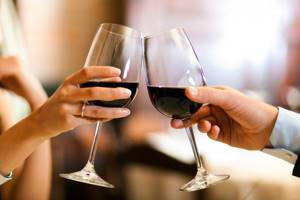
Doctors recommend drinking a glass of red wine a day; it also does not harm athletes. Red wine increases the level of dopamine and adrenaline: this promotes muscle growth and the burning of excess fat.
ON THE TOPIC: Losing weight on yolks: how to lose 4 kilograms without effort
A glass of white wine reverses the harm of fatty foods and is rich in antioxidants, which in turn helps to tighten the skin faster after losing weight.

It is important to observe moderation, drink only a few glasses on holidays.
We asked coach Igor Obukhovsky what he thinks about combining wine and sports.
Igor Obukhovsky, fitness trainer, author of the “Fat-Killer” method
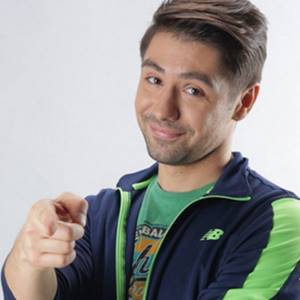
If you are losing weight, then, of course, it is advisable to avoid any temptations, and why the extra calories? If you combine proper nutrition with reasonable exercise, then it is acceptable to drink 50 grams of good red wine with lunch. But proportions are very important - a small amount of good wine will even benefit the body, of course, if not every day and again - in moderation.
Drinking before and immediately after a workout is very risky. If shortly before, it can affect the increase in blood pressure and deterioration of well-being; if after, you will additionally load the body during the period when it needs to rest and recover.
Our people have this “trick” - they eat and drink so much that they can’t get up - and then run to the gym in the morning. Imagine, people come with a hangover, it’s clear that they are clearly not feeling well. The benefits of such training when the body is “in the astral plane” are very doubtful. Still, a healthy lifestyle and training are incompatible with such excesses.
ON THE TOPIC: How to lose 5 kilograms after the holidays: fitness program from Igor Obukhovsky
Ideally, if you want, you can drink a glass of wine on days when you are not training. As for me, I can occasionally afford dry wine in very limited quantities. My maximum is two glasses. And again - on occasion, on holiday.
If you follow moderation, you can safely combine your favorite sport and delicious wine!
Did you like the article? Follow our other news on Facebook and VKontakte!
Alcohol and excess weight
It would seem that it could be simpler: I drank, had a snack, and then worked out and the excess weight would disappear without a trace. In fact, alcohol contributes to the accumulation of unnecessary pounds.
Increased appetite
Each drink you drink has a stimulating effect on the gastrointestinal tract, resulting in increased secretion of gastric juice. Appetite increases. In fact, a person is already full, but the body “does not understand” this and continues to give signals that he is hungry.
In addition, self-control is largely lost. Well, I ate a couple of extra pies - what happens? In principle, nothing special, just all the excess will settle on the waist and instead of muscle tissue, fat will build up.
Fluid retention
Alcohol has the unpleasant property of retaining moisture in the body. Hence the swelling that is observed in the morning by a person who wakes up in the morning after yesterday's good party with friends.
Excess liquid is the same 1-1.5 kilograms that suddenly appeared on the scales, which were not there before the party. Of course it will be out soon. But the unfortunate athlete is guaranteed to have unpleasant emotions.
The rate at which alcohol is eliminated from the body
The degree of alcohol intoxication depends on many factors: the quantity and strength of alcohol, the quality of food eaten, age and weight, as well as the general condition of the body.
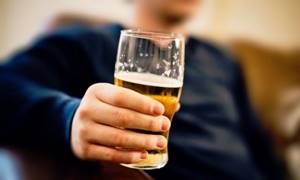
Approximate data on the rate of elimination of alcohol from the body are shown in the table:
| Alcoholic drinks | Time required for withdrawal | Weight, kg | Quantity, ml |
| Beer | 2 hours 40 minutes | 60 | 300 |
| 2 hours 20 minutes | 70 | ||
| 2 hours | 80 | ||
| 1 hour 40 minutes | 90 | ||
| Champagne | 1 hour 40 minutes | 60 | 100 |
| 1 hour 30 minutes | 70 | ||
| 1 hour 20 minutes | 80 | ||
| 1 hour 10 minutes | 90 | ||
| Wine | 2 hours 30 minutes | 60 | 100 |
| 2 hours 15 minutes | 70 | ||
| 2 hours | 80 | ||
| 1 hour 15 minutes | 90 | ||
| Vodka, cognac | 6 hours | 60 | 100 |
| 5 hours 40 minutes | 70 | ||
| 4 hours 30 minutes | 80 | ||
| 4 hours | 90 |
What happens if an athlete drinks a lot of vodka?
The question of what happens if an athlete drinks a lot of vodka can be answered simply: such a person is no longer an athlete.
If a rising star of world sports appears at training in a state of slight sleepiness, in principle there can be no talk of any results. History knows many examples when really strong and promising athletes drowned their talent in vodka, being confident that they could do it, and alcohol was not a hindrance to them. As it turned out, it was a hindrance, and what a hindrance.
Sports and alcohol are incompatible, this truth should be known to everyone.
Therefore, an eternally young and eternally drunk athlete is rather a mythical character, since in real life a person who regularly “pawns by the collar” will never achieve serious success in sports.
